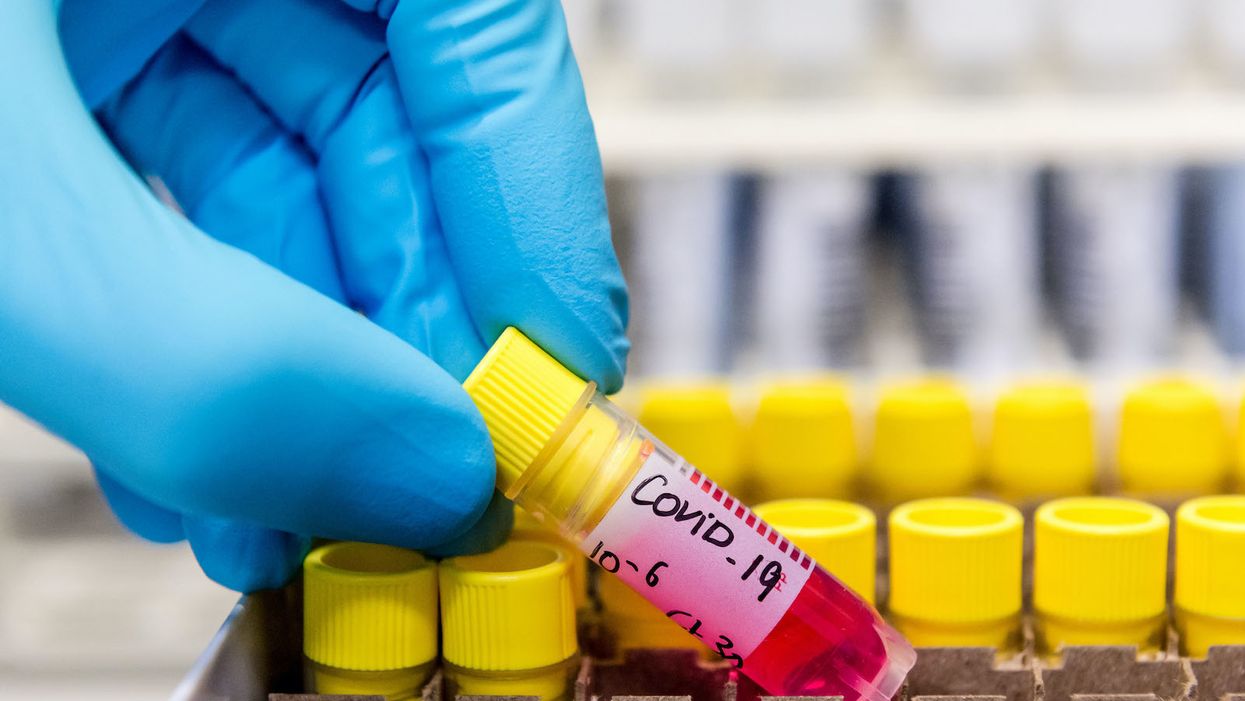
Geert Vanden Wijngaert/Bloomberg via Getty Images

'Undocumented infections, which tend to be milder, are distributing the virus broadly and are contributing essentially to what they call stealth transmission of the virus'
People who have the coronavirus — formally known as COVID-19 — but don't have symptoms and don't get tested for it may be responsible for a large majority of the disease's transmission, according to newly published research findings.
A study conducted by epidemiologists and published in the peer-reviewed academic journal "Science" on Monday used data from the coronavirus outbreak in China to develop a model of the disease's spread. That model found that almost 80% of the confirmed coronavirus cases originated from "undocumented" cases of the virus.
"These undocumented infections often experience mild, limited or no symptoms and hence go unrecognized, and, depending on their contagiousness and numbers, can expose a far greater portion of the population to virus than would otherwise occur," the study explains.
According to the study, the disease model "simulates the spatiotemporal dynamics of infections among 375 Chinese cities" before the country's regime implemented travel restrictions on Jan. 23. Based on the model's findings, the researchers estimated that a whopping 86% of the coronavirus cases went undocumented.
"Per person, the transmission rate of undocumented infections was 55% of documented infections," the study's abstract explains, "yet, due to their greater numbers, undocumented infections were the infection source for 79% of documented cases."
The researchers said that the study's findings help explain the rapid spread of the potentially deadly virus around the world in recent months.
"When someone experiences mild symptoms, and most of us can relate to this, we still go about our day and send the kids to school and go to work and might have a headache or slight fever and maybe take Ibuprofen and go out and go shopping and whatnot," study co-author and Columbia University environmental health professor Jeffrey Shaman said at a press briefing Monday, according to UPI. "It is that continued contact with people that allows the transmission of many respiratory viruses."
Shaman added that "undocumented infections, which tend to be milder, are distributing the virus broadly and are contributing essentially to what they call stealth transmission of the virus because it's undetected and flying below the radar."
The study's findings also drive home why it would be important for people to heed cautionary public health recommendations meant to slow the virus' spread, even if they aren't showing symptoms and haven't been diagnosed.
In the United States, the Centers for Disease Control and Prevention has issued a list of several general steps for people to take in order to combat the ongoing viral outbreak, such as washing hands, disinfecting surfaces, covering coughs and sneezes, and staying home when sick.
On Monday, the White House released a set of more stringent guidelines meant to slow the virus' spread over the course of the next 15 days. These include avoiding social gatherings of more than 10 people, halting nonessential travel, and not visiting nursing homes or long-term care facilities except "to provide critical care."